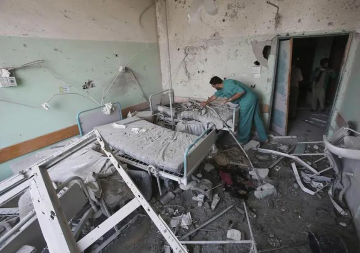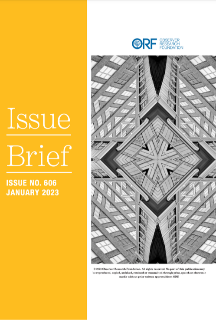The killing of al Qaeda chief Osama bin Laden in Abbottabad, Pakistan, is as much of a decisive moment in the history as 9/11, with significant geo-political consequences, both immediate and long term, particularly in South Asia.
The most immediate concern is the possibility of a series of revenge terrorist attacks on the US or its allies, including Pakistan. These may take place within the next few days and continue for several months.
Al Qaeda: What is likely to magnify this imminent threat, which India too faces, is the possibility of 'local commanders' and 'lone wolves' allied to al Qaeda ideologically and otherwise working autonomously to take revenge, and to establish their own local fiefdoms in the countries they are currently operating.
It can be said with some certainty that with its military and ideological leader gone, al Qaeda's command and control is likely to degrade further, triggering a 'war of succession' of sorts within the leadership and ranks of the global terrorist group. The al Qaeda second-in-command, Ayman al-Zawahari, has neither the ideological pull nor the kind of loyalty which Laden used to create the most dangerous terrorist group in the world.
These developments might have both positive and negative consequences for the war on terror. The killing of Laden is undoubtedly a military defeat for al Qaeda but on the ideological front, there is still some way to go before it can be said with surety that the global terrorist movement has been put to rest. Smaller leaders within the group, like the Yemeni cleric Anwal al-Awlaki, are likely to assert themselves by consolidating their hold over the group and attempt to carry out 'spectacular' attacks to prove that al Qaeda was not dead.
Taliban: The impact on the Taliban will be equally remarkable. The killing of Laden by the US in Pakistan would demoralise the Taliban leadership hiding in Quetta and other parts of Pakistan. It would seriously undermine their faith in Pakistan army to protect them. The equation between the Taliban and al Qaeda leadership would also see a shift in the days ahead. The question is whether Laden's death has robbed the Taliban of a global voice and reach?
Pakistan: The fact that the CIA was able to track down Laden hiding in a house, within 800 metres of Pakistan Military Academy, in Abbottabad district, some 150 kms north of Islamabad, makes it apparent that the 'war on terror' with all its manifestations is firmly shifting to Pakistan from Afghanistan.
It is too early to understand the full ramifications of the CIA operation inside Pakistan against Laden, considered by a significant number of civilians and military men to be a leader of Islamic cause, many called him reverentially as 'sheikh'. A clear assessment at this stage is made more difficult by the lack of information of how and what happened in Abbottabad on Sunday night when a team of elite US Navy SEALs landed there in three helicopters.
Known facts are as follow: Laden was trapped and killed in a mansion in a locality in a district in Khyer Pakhtunwa which was also the headquarters of a Brigade of Pakistan Army's 2nd Division. The operation was a US stand-alone operation and the Pakistan was not informed of it in advance. Laden, his family members and others have been living in the house for sometime. The US had been on Laden's trail since August 2010.
The unknowns are far too many. It is not known whether Pakistan Army and ISI were in the know of Laden's whereabouts. It is convenient to presume so but there is no evidence to such a belief so far. It is also not known how much the army knew about the operation itself. So, for ISI, is it a case of 'intelligence failure'?
Whichever way, the implications for Pakistan seem to be grave. Its relationship with the US will never be the same. The war on terror will undergo a dramatic shift in the days ahead. What must be watched is how far Pakistan Army will now go with the American plans in the Af-Pak region. It is certain that the possibility of a military operation in North Waziristan has receded even further. Will this 'set back' force the army-ISI to give up, or draw down, its 'strategic alliance' with terrorist groups. The conventional wisdom says that it will not give up the 'jihadi' option so easily.
The most serious impact of the CIA's Abbottabad operation was likely to be felt within Pakistan's military establishment. The credibility of Army Chief Ashfaq Kayani and ISI chief Shuja Pasha has come under cloud. The real big question is how the army and ISI leadership will justify the American military action within Pakistan. Will there be serious differences among the top leadership of the army over this foreign military operation which violated Pakistan's sovereignty? Will Shuja Pasha quit? Will this incident strengthen or weaken the radically inclined officers in the army and ISI? Will these dissensions within the military trigger a coup?
These are questions with no easy and quick answers but will decide the course of events in the weeks and months ahead in South Asia.
Wilson John is Senior Fellow and Vice President, ORF
The views expressed above belong to the author(s). ORF research and analyses now available on Telegram! Click here to access our curated content — blogs, longforms and interviews.




 PREV
PREV

